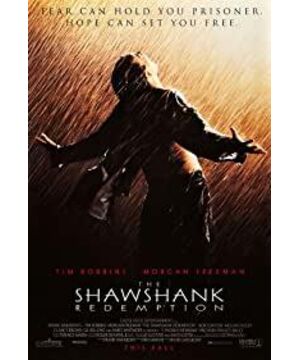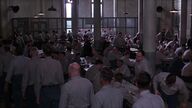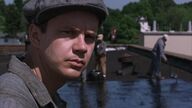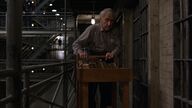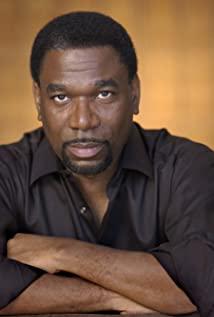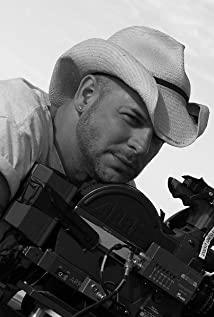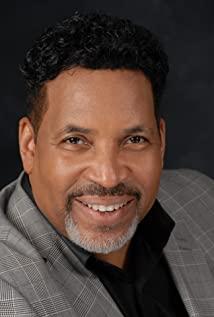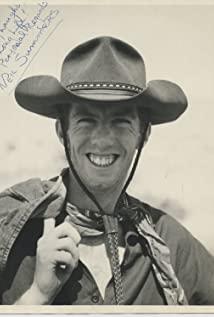And after more than ten years, its charm has not diminished. What attracts us to it? Some say it's because it reflects "human resilience". Indeed, with a small hammer, in the past 20 years, in a fascist prison with extremely strict personal control, a small tunnel for escape was dug (perhaps it is more appropriate to call a small tunnel by knocking out, the hammer is too small ). Isn't this a manifestation of human tenacity? However, I think this plot is obviously dramatic. This is just the director's need for the plot arrangement. This ending is just to reflect that Andy's "self-redemption" has finally succeeded, otherwise the whole plot and theme will be unsustainable. So some people think that "The Shawshank Redemption" actually reflects how precious "hope" is to people. Yes, there are many places in the film that directly talk about hope. For example, what Andy said in his letter to Rhett after his escape from prison: "Remember, Hope is a good thing, maybe the best of things and no good thing ever dies." Maybe this is what the work and the director want to tell us. "Fear can hold you prisoner, Hope can set you free." This phrase has become famous. For me, "The Shawshank Redemption" doesn't stop there. Let me tell you what I think about the characters in the film. A Sharkcastle prison, with prisoners and officials, seems to be the face of all beings in our society. Warden Norton is aloof, usually sane, reversing the Bible, but in fact unscrupulous, cruel, insidious and greedy when he grabs benefits. Prison Superintendent Haley and other police officers, brutal and brutal, acted as Norton's thugs, taking the lives of prisoners. Don't they resemble the real power classes in our life? I call it the ruler of the "little society" of Sharkcastle. There are also differences among prisoners. In addition to the protagonist Andi, Reid (Morgan Freeman) is of course a key character, and I think he is the clue to the whole film: Actually, there is not much dialogue in the whole film, and many of the things the film wants to show are through Reid. Most of the monologues spoken by Reid are summaries of Rhett's reflections on Sharkcastle's life and his interpretation of Andy. Rhett was a wise man, he got along very well in Sharkcastle, and the needs of the prisoners were "nothing he couldn't get." His wisdom also insight into the essence of life in Shark Castle, he said to Andy: "In Shark Castle, hope is a dangerous thing", which is the word of a wise man. In my environment, people will say "Comrade Reid is very mature and sophisticated" and so on. However, like those so-called "wise men" in reality, although Rhett clearly saw the essence of Sharkcastle, he didn't want to fight, let alone influence and change others, he just conformed to the rules of Sharkcastle in order to Protect yourself. Until Andy appeared, changed him, and finally led him to freedom. Tommy, among the main characters in the film, arrives at Sharkcastle the latest. Like Andy, he is full of hope in life and works hard for it with Andy's help. However, he is young and naive and does not know how to protect himself. At the time, he was murdered by Norton and Haley because he knew the truth about Andy's injustice. The three Boggs sisters, Red said they were "beasts", sodomites "bred" in an environment like Shark Castle, and our poor master Andy was brutally murdered several times. Boggs and the others are not part of the Sharkcastle ruler, but they are the ruler's tool to threaten other prisoners. Norton threatened Norton with Andy's refusal to launder money for Norton after Tommy was murdered by Norton and Haley. But Boggs was eventually beaten up because he bullied Andy and influenced the corruption of Norton and Haley. And of course Brooks, the librarian, was the one that struck me the most. Lao Bu's life profoundly reflects the life of "institutionalized" people. After spending most of his life in Sharkcastle, he was finally paroled and gained freedom, but once he left the familiar environment and familiar people, he could not feel his own value, could not find his own position, and he had physical freedom. , but in fact his soul has long been strangled by Sharkcastle, and the world that belongs to him has been compressed to a minimum. In the end, he can only choose to disappear from this world that does not belong to him at all. Why arrange for a character like Lao Bu? I think the director was trying to tell us that if Andy didn't show up, Old Boo was the future for Red and most of the other prisoners. Is he also like the future of many people in our real life? And Andy (Tim Robbins), our hero, is a real person. "It takes a strong man to save himself, and a great man to save another." Rhett could be said to be a "Strong" First, it is the destruction of human nature by "institutionalizing". There are long or short hints about this in many places in the film. The character is as long as the old cloth, and as short as Rhett's words. After his parole, he can WC without reporting to anyone for instructions, but he is not even used to it. "I can't squeeze a drop of urine out." There are other prisoners, for what Andy did, such as making Haley willing to invite prisoners to drink beer, play operas to prisoners, and even every scene of dialogue with the prison, all other prisoners talked about with relish, They thought what Andy had done was unimaginable. Such a plot is reminiscent of Mr. Lu Xun's works. Second, I think the film is mostly about answering the question "What should I do in the face of 'institutionalizing'?" and the author focused all the answers I thought were right on Andy. There are four points: First, keep hope in life and never give up. As mentioned earlier, Andy said in a letter to Rhett after his escape from prison: "Remember, Hope is a good thing, maybe the best of things and no good thing ever dies." There is also a plot that I think illustrates this. , A few years before entering Sharkcastle, Andy was beaten and gang-raped more than a dozen times by the three Moggs sisters, but under such a dark life, Andy did not sink. He could do it. The only explanation is, Andy's belief in redemption and yearning for freedom is constantly giving him hope. (A person who does not even have ideals and hopes is just a pile of walking dead, no matter whether he is rich or poor.) Second, you must have enough courage. When Andy faced Haley for the first time; when he faced the insults of the Moggs; especially when he played opera for the prisoners, doing each of these things was a life-or-death test, but he had no fear, no Courage can do it! (If you have an ideal without courage, then this ideal is almost equal to nothing.) Third, you must have the perseverance to persist in action. With a small hammer that can be hidden in a book, it took nearly 20 years to carve out a tunnel to escape to freedom. It is absolutely impossible without perseverance. In addition, insisting on writing letters to the state legislature for six years to seek funding, and building a library for prisoners is also a plot that reflects this point more in the film. (Without perseverance and perseverance, the highest achievement can only be a dreamer.) The fourth is to have the wisdom of action. Needless to say, I believe that after watching the whole film, you will praise Andy's talent and wisdom in your heart. His plan was grand and perfect, and it was his wisdom that led Andy to complete the redemption and punish Norton and Haley. (With courage, perseverance, but no wisdom, the final result is often not success but setbacks and failures. The ideal is still unattainable) The Oscars in 1994 were too strong, "Pulp Fiction", "One of Four Weddings" Funeral, Forrest Gump, The Shawshank Redemption... so many great films. "Forrest Gump" ended up being the best picture, but if I had to choose a winner, I would prefer "Shaw". Because, I think "A" is a good film, but it more reflects the social characteristics of the United States and American values. In other words, it is more like an American "main theme" film. And "Xiao", the "institutionalizing" it reflects, is more meaningful to Chinese society. I have a great deal about the line in the film, "These walls are kind of funny like that: First you hate them, then you get used to them, Enough time passed, get so you depend on them. That's institutionalizing." Resonance - this dreaded process is exactly what I have been trying so hard to avoid. I'm not a prisoner living in a prison, but am I some other prisoner? For me, redemption can't just be talked about. institutionalizing. ”, resonates immensely—a horrific process I’ve been trying to avoid. I’m not a prisoner living in a prison, but am I a prisoner of some other form? Redemption is, I’m afraid, not possible either. Just talking. institutionalizing. ”, resonates immensely—a horrific process I’ve been trying to avoid. I’m not a prisoner living in a prison, but am I a prisoner of some other form? Redemption is, I’m afraid, not possible either. Just talking. institutionalizing. ”, resonates immensely—a horrific process I’ve been trying to avoid. I’m not a prisoner living in a prison, but am I a prisoner of some other form? Redemption is, I’m afraid, not possible either. Just talking. institutionalizing. ”, resonates immensely—a horrific process I’ve been trying to avoid. I’m not a prisoner living in a prison, but am I a prisoner of some other form? Redemption is, I’m afraid, not possible either. Just talking.
View more about The Shawshank Redemption reviews


